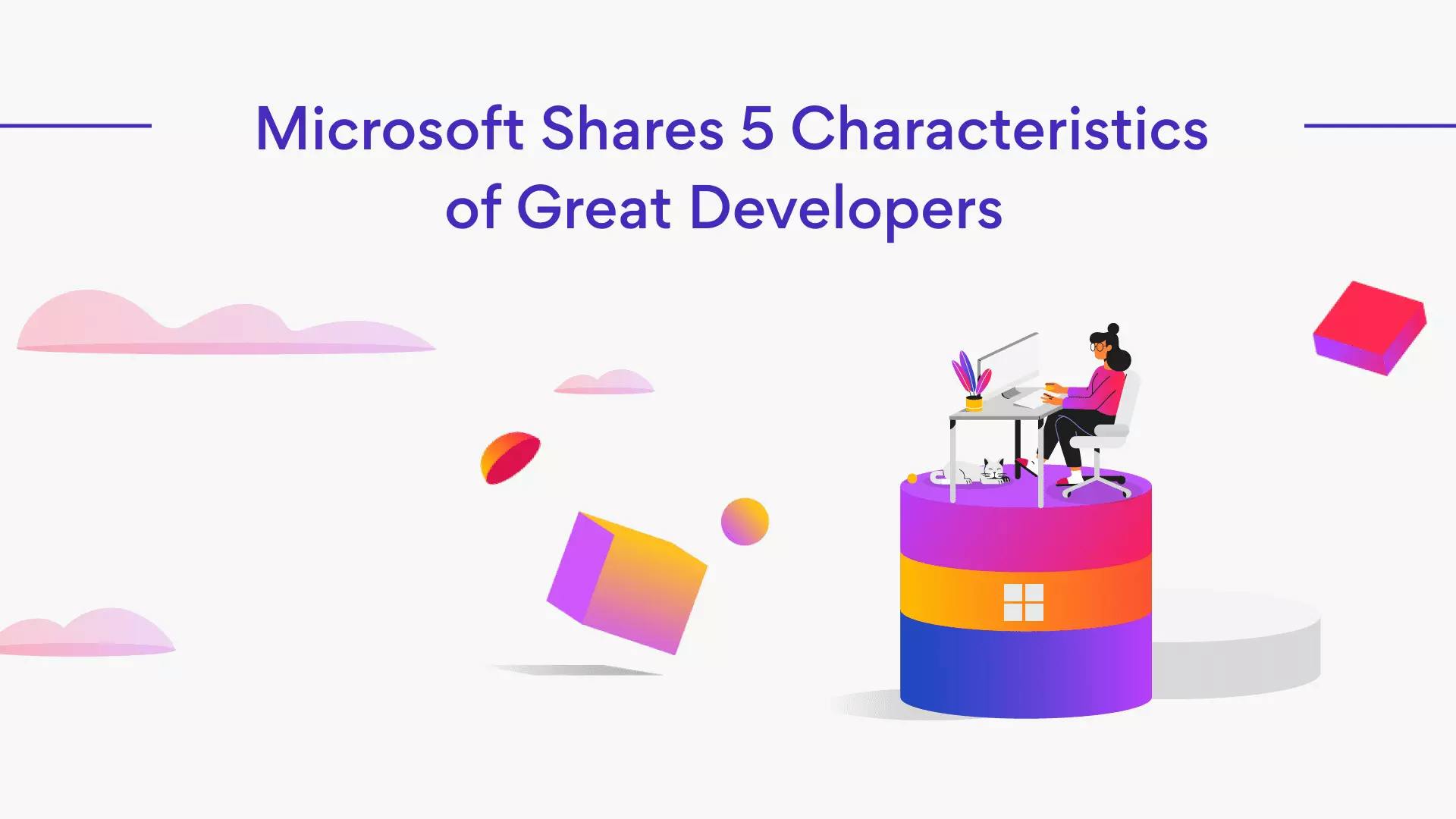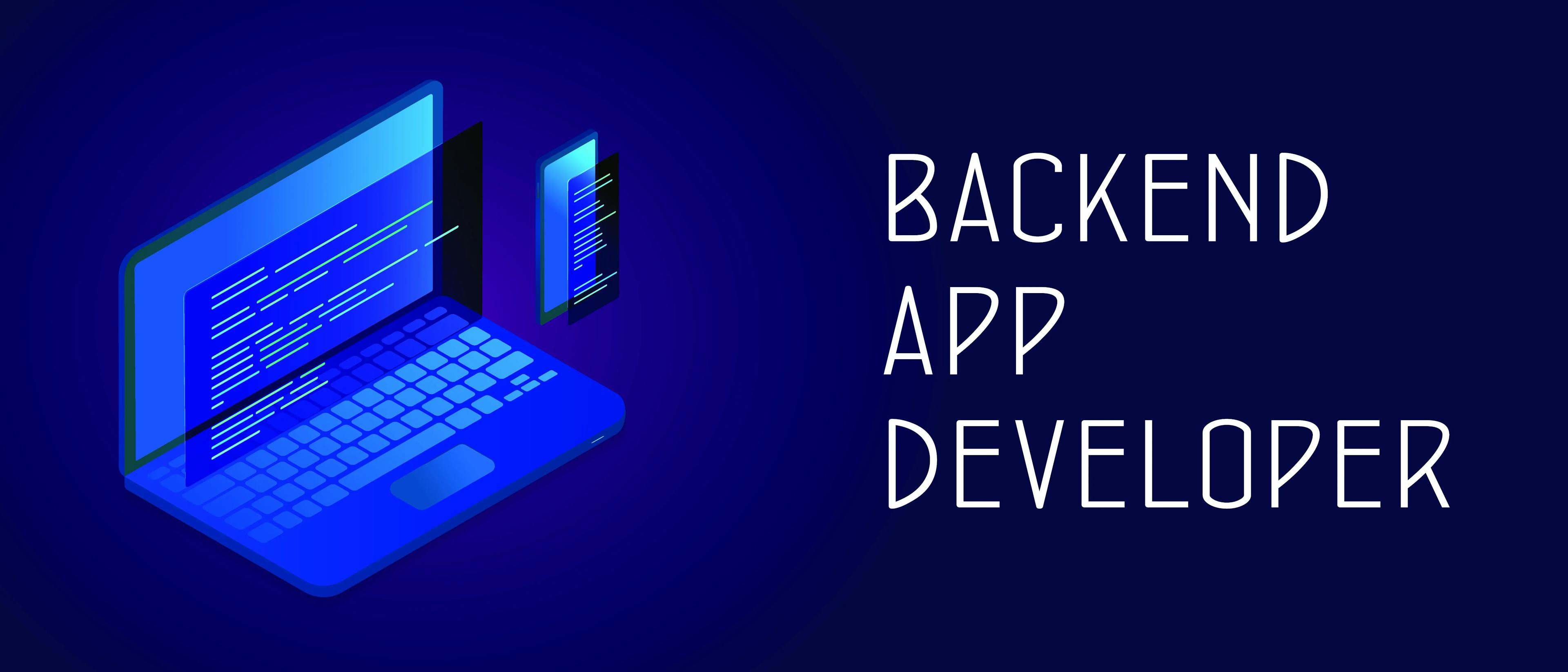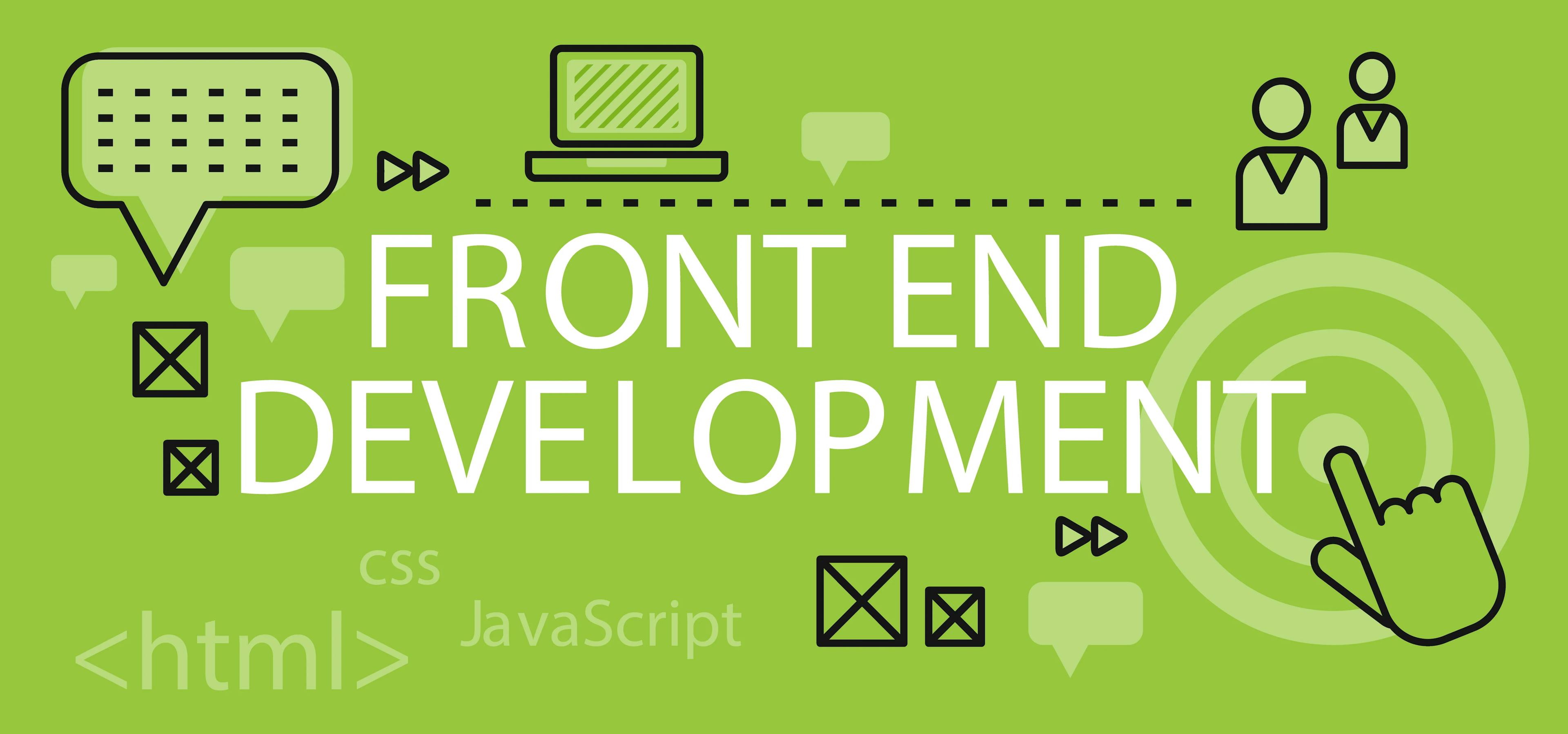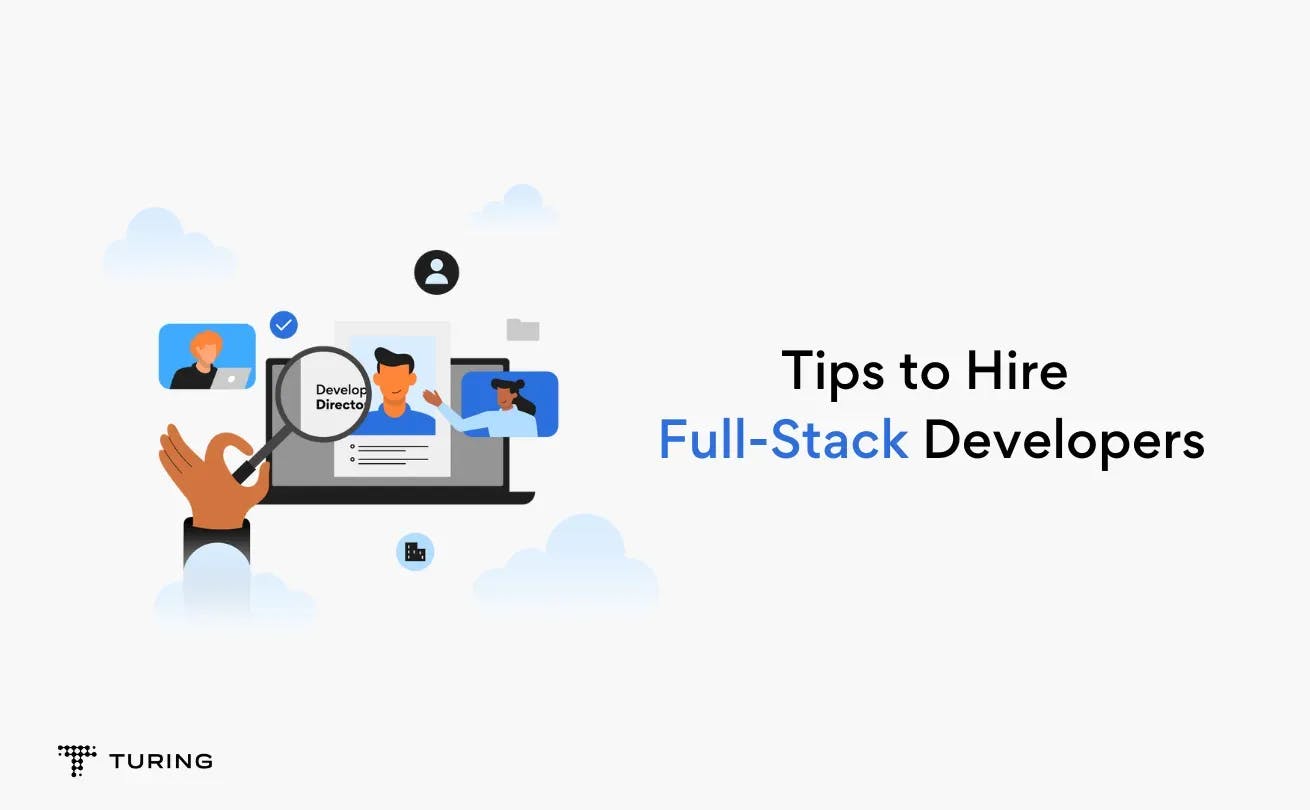Hire full-stack developers remotely within 4 days
Companies can now hire full-stack developers remotely with Turing. Hire now and spin up your dream engineering team with Turing’s AI-powered deep-vetting talent platform that sources, vets, matches, and manages 3 million+ developers worldwide.
Get 3-week risk-free trial
4 days
to fill most roles, sometimes same day.
50+ hours
of engineering team time saved per developer on interviewing.
97%
engagement success rate.






Hire the top 1% of 3 million+ engineers who have applied to Turing
Here’s what customers have to say about Turing
See all reviewsTuring has been providing us with top software developers in Latin America. All our other vendors combined don't have the headcount that Turing does.
Program Manager of one of the world's largest crypto exchange platforms We hired about 16 ML engineers from Turing which reduced our hiring effort by 90% as compared to other vendors.
Engineering Manager of a NYSE-listed, Fortune 500 healthcare company We're super excited about Turing as we will scrap our existing lengthy interview process and lean on Turing's vetting to build up teams on demand.
Director of engineering of a US-based, multimillion-dollar finance company
Hire full-stack developers through Turing in 4 easy steps
Tell us the skills you need
We'll schedule a call and understand your requirements.
We find the best talent for you
Get a list of pre-vetted candidates within days.
Schedule interviews
Meet and select the developers you like.
Begin your trial
Start building with a no-risk 3 week trial period.

How to hire a full-stack developer? Skills to look for, interview questions, and more
It is hard to hire dedicated full-stack developers as unlike specialized developers, these developers have a suite of skills, including front-end development, back-end development, graphic design, full-stack Android development, and more. From front-end applications to server applications and database design, an experienced full-stack developer manages all the crucial aspects of a project. Therefore, companies that wish to hire a developer who could help them in literally everything must hire the best full-stack developers.
However, hiring an experienced full-stack developer with all the required skills is both hard and time-consuming. To ease the effort, Turing offers the best pre-vetted full-stack developers at half the price. Turing selects top remote full-stack developers after testing their expertise in several areas, such as Java, Python, Node.js, HTML/CSS, databases (SQL, NoSQL, MongoDB), among others.
If you are a non-technical manager and interested in learning more about the technical interview questions and the hiring process of a full-stack developer, we've put up an excellent resource for you.
Skills to look for in a full-stack developer?
At a high level, full-stack developers should have the following skills in his/her arsenal:
1. Familiarity with front-end technologies
Front-end plays a critical role in the application development process as users interact with the application using this part. You should hire full-stack developers who are proficient in frontend tools and technologies to create excellent user experiences. Look for developers who have deep knowledge and experience in HTML, CSS, JavaScript, jQuery, ReactJS, Angular, and others.
2. Expertise in back-end programming languages and frameworks
Along with the knowledge of front-end development, a full-stack developer must also have a keen knowledge of backend technologies. Creating an efficient and scalable backend of an application or website is one of the essential tasks a full-stack developer performs regularly. They should be familiar with programming languages like JavaScript, Java, Python, and Ruby and frameworks like Laravel, Django, Apache, NGINX, and others.
3. Basic design skills
Full stack is a diversified role. However, you don't want to recruit someone who only has a basic understanding of the subject. While understanding the frontend applications that can provide the ability to create interactive user interfaces, it is also important to have knowledge of fundamental designing and graphics skills. This includes UI & UX design, scalability, and more.
Interested in hiring a full-stack developer?
Join Turing and find top developers now!
4. Proficiency in database management
In-depth knowledge of database management is crucial for a full-stack developer. They should have a deep understanding of querying languages, like SQL, and understand how to use databases with back-end frameworks. They should also know how to work with various database systems, including MongoDB, Oracle, MySQL, and SQLServer, and use object-relational mapping (ORM) libraries to map objects in code to tables in databases.
Looking to hire full-stack developers? Explore some tips and tricks on how to hire full-stack developers effectively. Click here
5. Server and API knowledge
Full-stack developers must be familiar with web servers and APIs to build a complete web application. They should know how to set up and configure web servers, such as Apache, Nginx, or IIS and write server-side code that responds to HTTP requests and delivers data from a database or other sources.
Knowledge of APIs is also essential for a full-stack developer. Hire full-stack programmers who can design, and implement RESTful APIs that conform to industry standards. They should also know how to integrate with third-party APIs, like payment gateways, maps, and social media platforms.
6. Knowledge of code versioning tools
Application development is incomplete without the knowledge of code versioning tools. Popular versioning tools such as Git helps developers to control each and every step in the process of web development. Full-stack developers who have adequate knowledge of working with such platforms can work efficiently on any project.
Work with top full-stack developers from around the world
Turing helps you find the right developers for your project
7. Knowledge of various development languages
While hiring a full stack developer, it is important to keep in mind that the developer must have programming skills on both the frontend and backend sides. Some of the important programming languages in the frontend and backend side include JavaScript, PHP, Python, Ruby, Java, .NET, etc.
A job description is similar to a job posting, but it has less emphasis on the company and more emphasis on the position. It should motivate candidates to apply for your opening. Perfect your full-stack developer job description postings by checking out our dedicated guide on job description writing.
8. Problem-solving skills
A full-stack developer should be a quick thinker and should be able to identify and troubleshoot problems quickly. They must be able to debug code, test their applications, and continually refine them to improve user experience and overall performance.
Before you hire full stack developers, you must evaluate their problem-solving skills through coding exercises or small projects and see how they approach them.
9. Excellent communication and collaboration skills
Evaluating communication and collaboration skills is essential to hire dedicated full stack developers because they need to collaborate with multiple stakeholders. This includes other designers and developers, quality assurance engineers, project managers, and product owners. Effective communication helps ensure successful project delivery and timely completion of the project.
Create a hiring funnel
Creating a hiring funnel will provide you with numerous benefits, like assisting you in identifying the top skills and identifying a full-stack developer who will fit into your company's culture.
What Turing does for you
Candidates screening
We will help you select the best talents and spot a full-stack developer who will fit in your company culturally.
Test task
We verify if the candidate really wants to work at your company and is able to spend 5+ hours to prove it by rigorous tests. It helps us to see a developer's caliber.
Technical test
Developers are asked full-stack related questions and made to solve tricky problems. We use open questions. The goal is not only to test developers’ knowledge – we also want to find out their way of thinking.
Giving specific feedback
We provide explicit feedback on both the test task and the technical test after we have checked the developer's expertise.
What you do
Interview
You can interview the shortlisted developers to check if the candidate matches your requirements and is a good fit for your company.
Hired/Not-hired
Hire intelligently with developers sourced by software, vetted by software, matched by software & managed by software.
Top interview questions to hire full-stack developers.
Whether you're an IT recruiter or a project manager, you must be aware that it's difficult to find full-stack developers. However, hiring highly skilled and experienced developers is critical to project success, which can be ensured through meticulous interviews. Here are some sample full stack interview questions you can refer to when you hire full stack developers.
Work with top full-stack developers from around the world
Try Turing today and discover great developers to fuel your ideas
Here are some more full-stack developer interview questions that you can ask to assess a developer’s caliber.
- What is Pair-programming?
- What is long polling?
- What tools would you use to test your code’s functionality?
- What would you say was your best implementation experience till date?
- How do you keep abreast of new developments and trends?
Latest posts from Turing
Frequently Asked Questions
What is the no-risk trial period for Turing full-stack developers?
The purpose of the 3-week no-risk trial period is to start working with the developers and include them in the team. If you are satisfied with the developers, you keep working with them and pay their salary including the first 3 weeks. But, if you are not satisfied during the trial period, then you won’t pay anything.
Are full stack developers in demand?
The demand for full-stack developers is high as they are a valuable asset to any firm. Their wide-ranging knowledge lets them be flexible, adaptable, and agile. If you are looking to hire a proficient full stack developer, reach out to Turing to make the hiring process easy.
How to hire full-stack developers?
Get a proficient full-stack developer who is flexible to work in your timezone with the assistance of Turing, an AI-powered deep-vetting talent platform that finds the best talent from all over the globe. Get the best remote full-stack developers within a span of 4 days at Turing.com.
How does Turing vet remote full-stack engineers?
Turing has created the first and only AI-powered deep-vetting talent platform to vet remote developers for a Silicon Valley bar. Turing tests developers based on actual skills vs. self-reported experience from traditional resumes or job interviews. Every developer at Turing has to clear our tests for programming languages, data structures, algorithms, system designs, software specialization, frameworks, and more. Each Turing developer goes through our automated seniority assessment test comprising 57 calibrated questions in 5 areas — project impact, engineering excellence, communication, people, and direction.
For which other skills can I hire remote developers from Turing?
With Turing, you can hire the best remote developers for 100+ skills such as React, Node, Python, Angular, Swift, React Native, Android, Java, Rails, Golang, PHP, Vue, DevOps, Machine Learning, etc. Turing also offers developers based on tech stack and seniority.
What are the common full-stack developer interview questions?
With Turing, companies can now build a team of the best remote full-stack developers in a matter of 4 days. Some of the common full stack developer interview questions are related to CORS or concepts like Continuous Integration and Multithreading.
Hire Turing Developers
Let’s Find the Right People to Accelerate Your Roadmap
You don’t need more resumes. You need the right talent embedded in your workflows, aligned to your KPIs, and ready to build from day one. Let’s talk about what’s missing, what’s possible, and how we can help you move faster.














